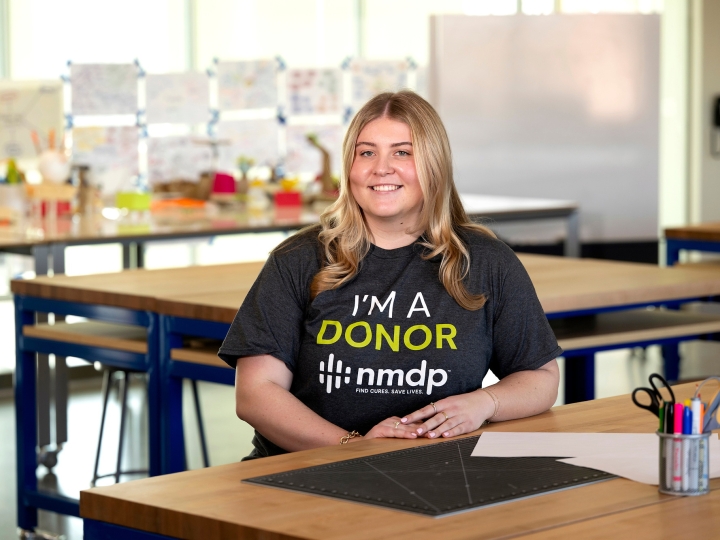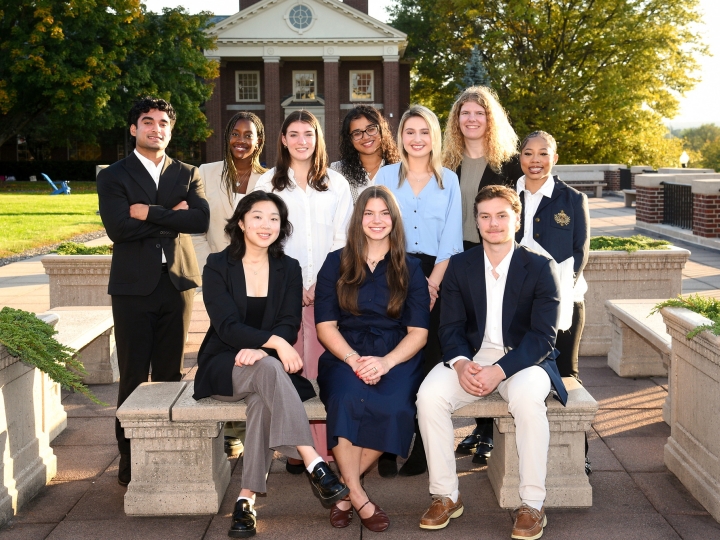Ain't I A Woman
January 23, 2015
"I stand here tonight a proud African-American transgender woman," said Laverne Cox to the audience in Bucknell University's Weis Center for the Performing Arts. "I am working class, an artist, actress, sister and daughter. I have multiple identities, and each one is important."
Identity and her journey toward acceptance — both from others and herself — was the overarching theme of Cox's talk, the second in the 2014–16 Bucknell Forum speaker series Revolution Redefined.
With poise, style and wry humor, Cox plotted the "seminal moments" in her life, from her youth in Mobile, Ala., through her high school and college experiences, and finally to her medical transition, which began about 16 years ago.
"I stand here tonight claiming my womanhood, within a context that would often deny it," she said. "But ain't I a woman?" Cox tossed her hair over her right shoulder, and the audience cheered.
Thread of trauma
In her talk, Cox was frank about the challenges she's faced, and still faces today. The childhood taunts she endured didn't end as she transitioned from child to adult, man to woman, dancer to Emmy- and Screen Actors Guild-nominated actress. Instead they became a traumatic thread woven throughout her life. Schoolyard fists became public shaming, and later catcalls on the street. All of it, she said, is a form of violence.
Cox's saving grace was her own creativity. "I didn't feel safe at school, I didn't feel safe at home, but I felt safe in my imagination," she said.
She found solace and joy in dance, and excelled academically in college. As a "club kid" in the '90s, Cox met a trans woman who showed her that a medical transition to womanhood was not only possible, but beautiful. She began her own transition shortly after.
Though she still suffers from past and present trauma, Cox said she feels lucky. "So many others are not so lucky," she said, referring to the murder of transgender women such as Islan Nettles. "I know, but for the grace of God, I could be Islan Nettles. If we really want to redefine revolution, we have to begin to create a space to heal from trauma."
An inspiration
Cox referenced bell hooks, Simone de Beauvoir, Sojourner Truth and Brené Brown throughout her talk as women who have helped to inform her worldview. She praised Bucknell's facilities — "I was excited to see a gender neutral bathroom," she said — and emphasized that to avoid misgendering, pronouns matter. She also challenged the audience to "take the risk to have different conversations across difference, with love."
Turner Stulting '16, president of Bucknell's Gender and Sexuality Alliance, introduced Cox before she took the stage, saying, "She inspired me to be who I am."
Stulting was not alone in that sentiment. During the Q&A portion of the evening, student after student asked Cox's advice — for themselves and for others. One said, "As a trans kid, I get bullied a lot. Do you have any comebacks I could use?"
The audience's quiet laughter was tinged with sadness, and so was Cox's smile.
"My brother once pointed out that I always wanted to be treated with dignity, and to act dignified," she answered. "I've found the way to do that is by lovingly setting boundaries. I try not to take things personally. I try to remember that I am here for bigger things."

